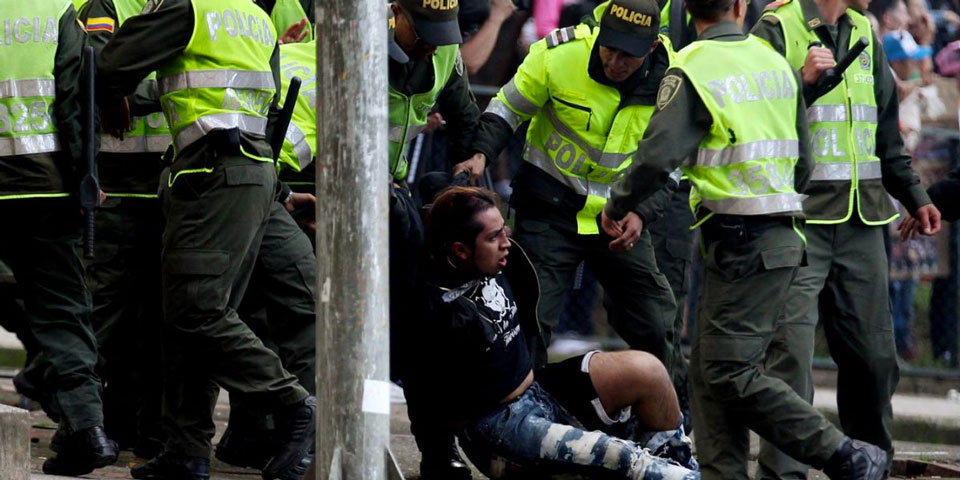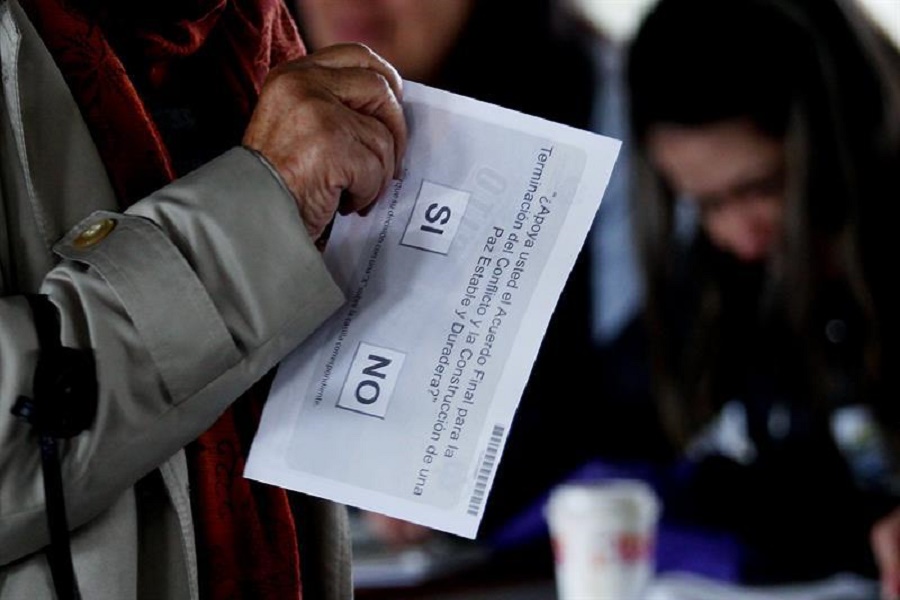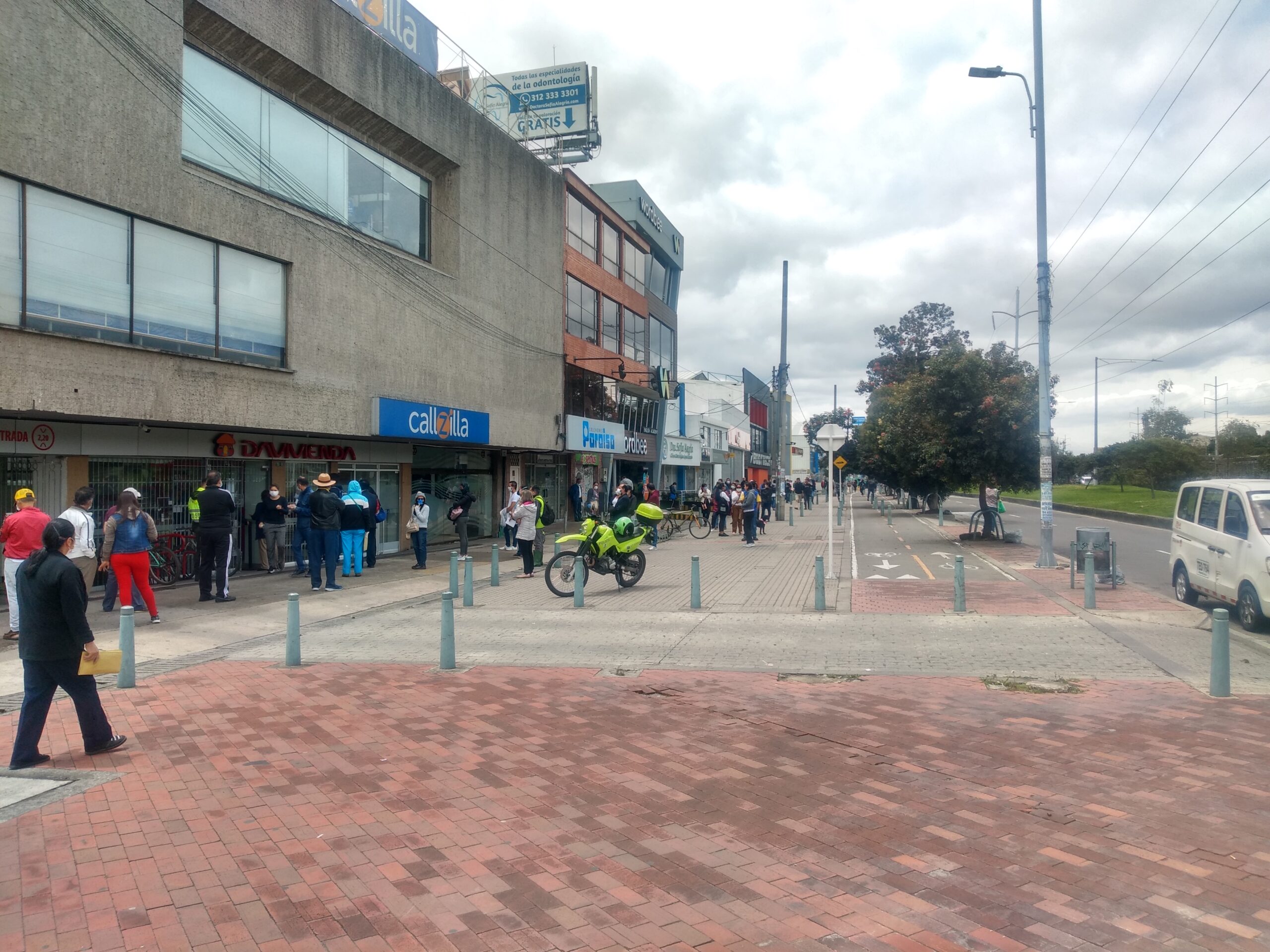
With the new police code now in force, it’s best to understand the new changes to regulations.
The new police code has come into force and Ángela Forero-Aponte identifies some of the activities that may now breach the rules.
After six months of police training – and a fair deal of controversy – the new Police Code came into effect on January 30. Having been approved by the government on July 29 of last year, it has prompted a great deal of discussion on whether it’s fair enough, its constitutionality, its clarity and whether it will give the police force too much power.
To some extent, those debates are now beside the point as the police have already started using their new powers, meaning that what is now most important is to understand this weighty tome of new regulations.
As with many such regulations and codes around the world they will seem logical to some, unfair to others and undecipherable to most. However, three things are clear to me: firstly, almost all societies need some kind of police code to try to regulate coexistence since, sadly, there are some who need to be forced into acting with a sense of community. Secondly, we all need to devote some time to reading the police code. We need to know what to expect so as to not accidentally break the law and to recognise when the police are not enforcing it correctly. Thirdly, don’t believe everything you hear – there are quite a few half-truths being peddled by the media and people on the street.
With this in mind, I sat down with a cup of hot chocolate and read the whole thing, pausing at the sections which directly affect me and skimming through the parts that are irrelevant to my day-to-day life (like, for example, illegal mining). Here are a few of the key points that are worth understanding about the code.
Myths and realities
Without wanting to undermine this piece, it’s obvious that many people won’t read the police code in its entirety, and will therefore get their information from social media or reports in traditional media (such as this one). The problem is that there are a lot of nuances to the regulations, including single words that may completely change the interpretation of it. Also there is a great deal of information out there that is just plain wrong. If you read the code, you’ll find that much of the language is not clear, which means that there is a lot of room for interpretation.
Here are a few of the common misunderstandings:
You must always carry your ID with you.
It’s definitely recommended – and if you don’t have a cédula, it is worth carrying a photocopy of your passport – but it will only be punishable when not carrying it is impeding a police procedure.
You are not allowed to wear headphones while cycling.
It’s not recommended but isn’t prohibited and is not included in the code.
Companies asking job candidates to take pregnancy tests will be fined.
The code does say that companies may be fined if they ask for pregnancy tests. However, authorities have clarified that for certain jobs – such as the chemical industry or building sites – there may be justification.
Police may enter your home at any moment.
Not exactly at ‘any’ moment. They are only allowed provided they have a court order or there is an emergency.
Street vendors will be stripped of their merchandise.
They will not, but they will be relocated.
You will be fined for consuming alcoholic beverages in public places.
City mayors have the authority to decide whether or not they will allow drinking, as well as the areas or events where it will be allowed.
Fines
If you go by what you’ve read, you could be forgiven for thinking that fines – or prison time – are the only punishments handed out for violating the code. In fact, money is not the only way to make up for your wrongdoings. There are actually over 20 different corrective measures ranging from verbal warnings or community service to actually repairing any physical damages caused by your actions. For example, if you don’t give up your seat on the Transmilenio to someone with special needs, the code states you will only receive a warning. Don’t take this as carte blanche to do as you wish though – there is a limit to the number of warnings one can accumulate.
Types of fines
There is a lot of contradictory information out there about how much the fines may add up to. Various tweets and Facebook posts proclaim amounts which differ from a few thousand pesos to up to COP$100,000. The fines are calculated as multiples of the current daily legal minimum wage (smdlv) which, for 2017, is COP$24,591. So, for example, if you are caught not picking up after your dog, it’s classified under Fine Type 1 which is four smdlvs (4 x 24,591 = COP$98,364 COP). There are four general fine types and three additional special fines.
What is useful to know is that not only are there different ways to pay the fines, there are also discounts available if you pay within a certain time or, conversely, interest that can be charged if you are over a month late. All of this information is available under Article 180: Fines in the code. This section also explains the process by which decisions made by authorities can be appealed.
Some interesting regulations abroad
This is not the first code to be controversial and difficult to understand and there are many examples of rules around the world which might not make sense to some, but which have been included in Police Codes nonetheless. Here are a few examples:
Italy: You may not feed the pigeons in St Mark’s Square in Venice or you could be fined. This act was outlawed in an effort to reduce pigeon numbers because of the damage they were doing to historic structures.
Spain: No driving with sandals/flip flops.
Thailand: Don’t step on currency – it is considered a criminal act as it is an insult to His Majesty, whose image is on all Thai notes.
Switzerland: Some Swiss people consider flushing the toilet after 10pm in an apartment unit is too noisy and is forbidden. Think of this next time you consider the average Colombian party to be too loud.
A final word
Many people are in a pickle when figuring out the police code. Don’t despair, though – there’s an Android app – Código de Polícia Colombia by Dairo Aguas Barraza – which makes it easier for you to consult the code at any time. Also, the new code gives you some new powers too: You are allowed to record any police action (unless you’re attempting to film a crime scene or it might somehow violate the rights of minors), which the police cannot refuse without being accused of misconduct. And while there are bound to be some problems, to some extent if you think about others and act as a ‘good citizen’, you shouldn’t find yourself on the wrong side of the law. This is, in the end, the main purpose of the new rules: to strive for a more peaceful and tolerant society.






